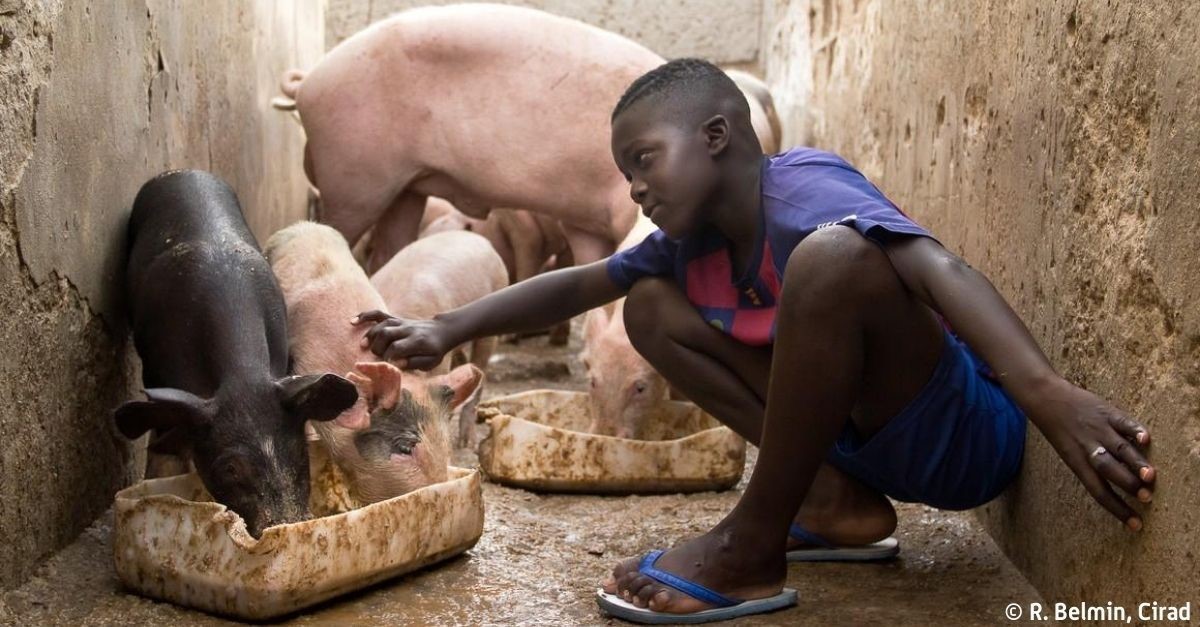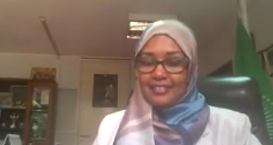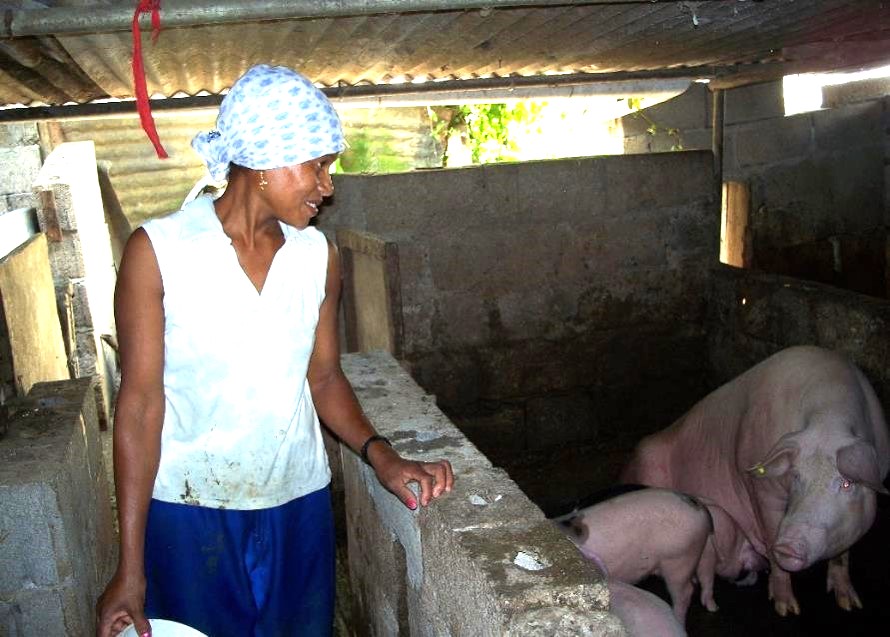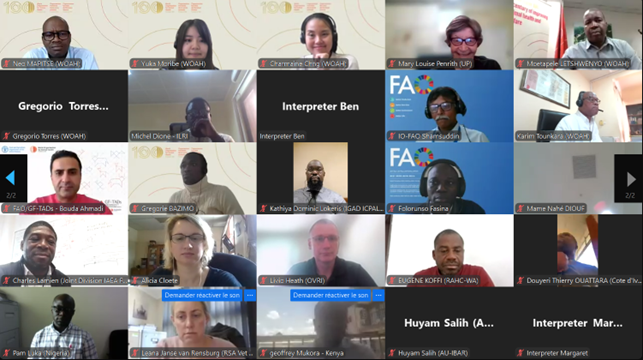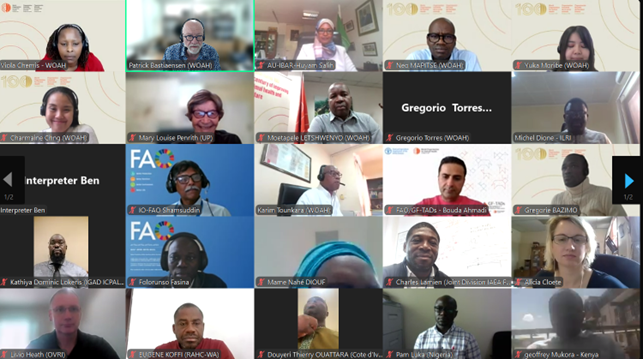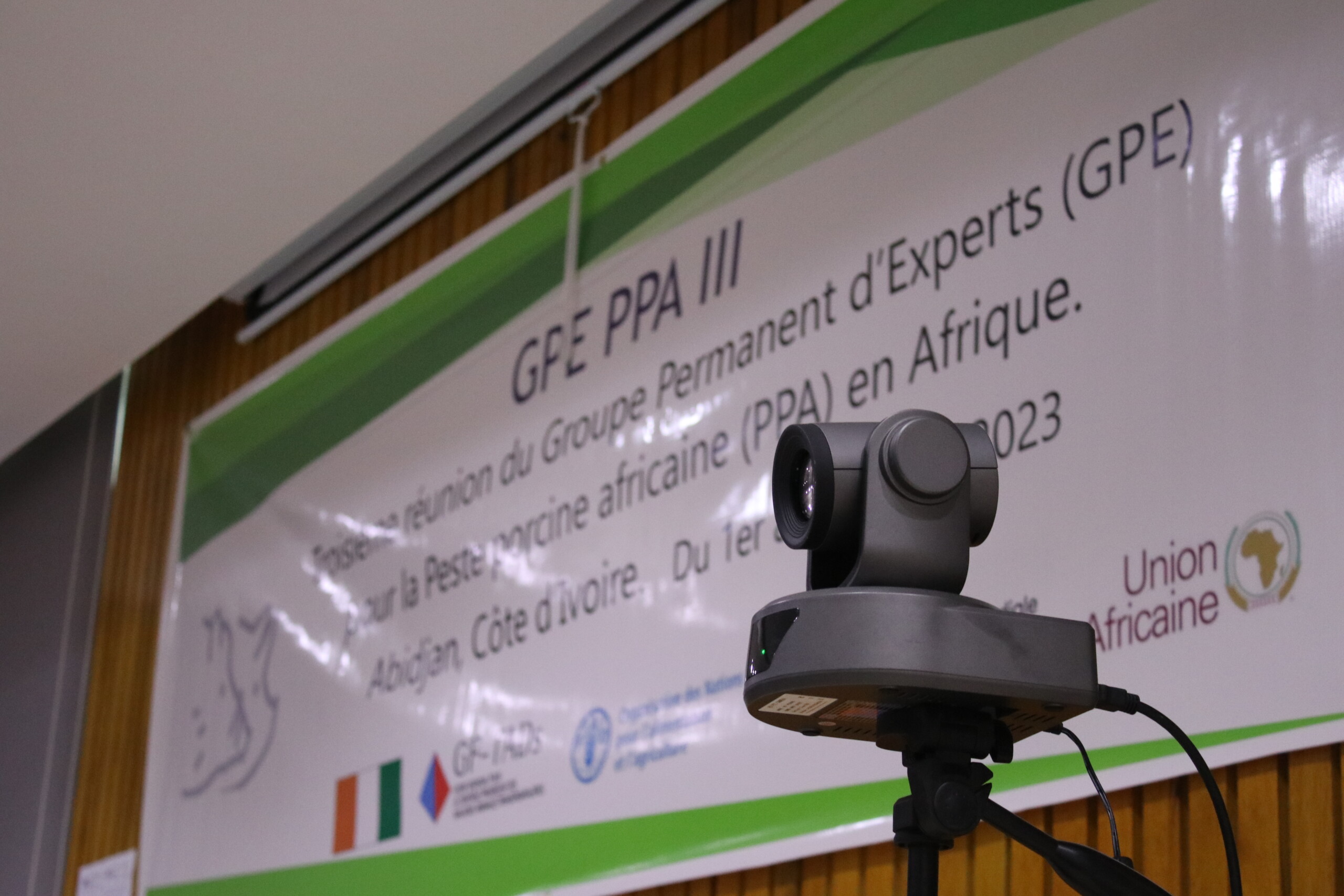
Photo (c) Raphael Belmin (CIRAD)
La réunion, organisée par le Secrétariat régional du GF-TADs à Nairobi, a été fréquentée par une moyenne de 35 personnes par session, sur les 60 participants inscrits. Au cours des trois jours, un total de 46 participants se sont connectés.
18% des participants étaient des femmes.
Les DSVs / Délégué(e)s OMSA présents venaient du Cabo Verde (Analina Pereira), du Cameroun (Garga Gonné) et de l’Eswatini (en tant que Vice-président du Comité de pilotage régional, Roland Dlamini).
Globalement, les pays représentés (sur dix membres) étaient:
en plus d’une présentation faite par l’Eswatini, en tant que Président du sous-comité d’épidémiologie et d’informatique du Livestock Technical Committee (LTC) de la SADC.
Des Membres, des Observateurs et des Experts ont également participé à la réunion, en provenance de :
En ce qui concerne le thème principal de la réunion, à savoir la riposte aux foyers, l’utilisation de l’indemnisation par certains Membres et la manière dont elle est appliquée pour garantir la conformité ont suscité un vif intérêt. Le zonage n’a pas été jugé particulièrement pratique à mettre en œuvre compte tenu de l’étendue des frontières terrestres ; en revanche, la compartimentation a été considérée comme un outil plus pratique pour la lutte contre les maladies, avec une meilleure faisabilité, car elle pourrait être appliquée par le secteur privé. Certains pays ont mis au point des mesures de contrôle et des politiques, mais le défi reste la mise en œuvre et l’application des politiques au niveau national pour favoriser la détection précoce et la gestion des épidémies.
Un rapport complet sera rédigé et diffusé, en français et en anglais, sous peu. Les préparatifs commenceront sérieusement pour organiser le GPE V, qui se concentrera sur « les vaccins et la vaccination », probablement à la mi-2025.
It is my honor to welcome you all to the 4th meeting of the standing group of experts on African Swine Fever (ASF) under the Global Framework for the Progressive Control of Transboundary Animal Diseases (GF-TADs). Your presence here today reflects our collective commitment to tackling one of the most significant threats to animal health and livelihoods in Africa and beyond.
ASF continues to challenge our efforts to ensure food security, economic stability, and rural development. Its devastating impact on pig populations, farmers, and communities across the continent cannot be overstated. This underscores the urgency for coordinated, science-based actions that we are gathered here to address.
ASF represents a great risk to Sub-Saharan Africa, considering great challenges including and not limited to the disease nature with the wildlife reservoirs, the limited veterinary infrastructure and the weak surveillance, also in the first place the traditional pig farming and limited biosecurity practices, cross borders and informal trade, and above all the lack of effective commercial vaccines due to the virus strains variability and mutations.
For all these challenges the current fight against ASF in Africa should largely relies on biosecurity measures, early detection, and disease management strategies; While ensure continued investment in vaccine research, field trials, and global cooperation is essential to eventually bring a safe, effective, and accessible ASF vaccine to the market, which could drastically reduce the disease’s devastating impact on African pig farming.
At AU-IBAR we commend the partnership and collaboration between the teams of the AU STOs (IBAR & PANVAC), FAO, WOAH and ILRI for the technical support through the development of the previous and current strategies, where the latest continental ASF control strategy was handed gratefully to AU-IBAR by the FAO ADG for Africa in Sep 2023.
This meeting is a crucial platform for us to share knowledge, review progress, and fine-tune efforts that will enhance our capacity to combat ASF. I am confident that with your expertise and collaboration, we can move closer to our shared goal of controlling ASF.
I wish you all productive discussions and look forward to the concrete outcomes that will emerge from this expert gathering.
I thank you
